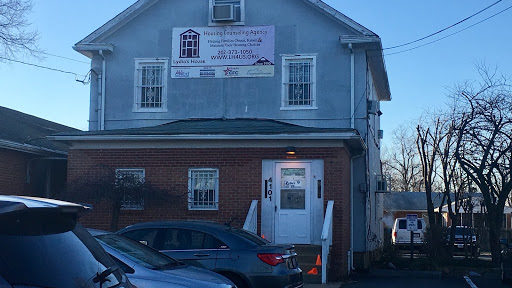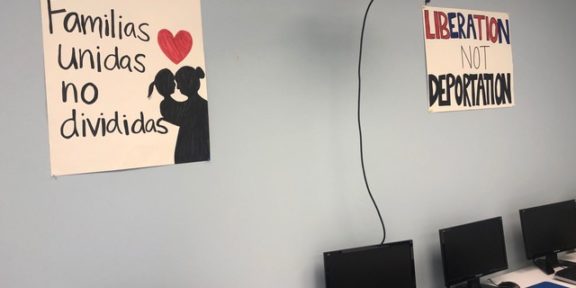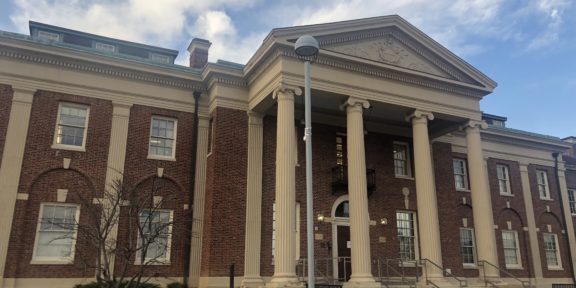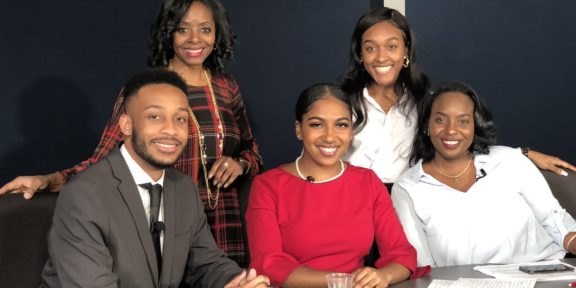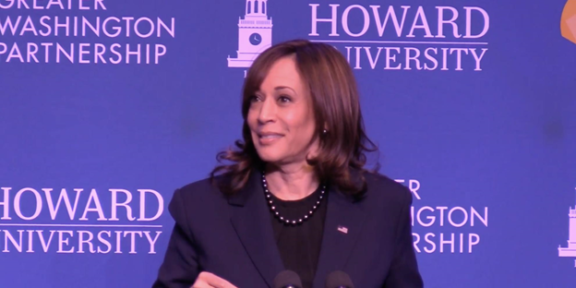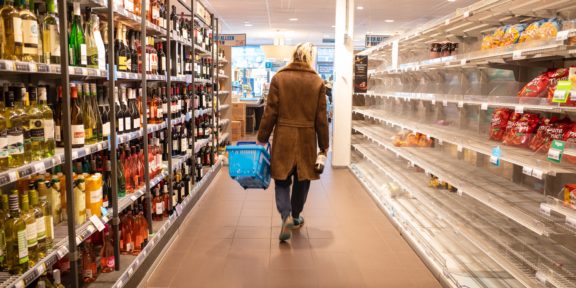The first implication that something wasn’t quite right on the corner of Florida Avenue and 7th Street N.W. was the eerie silence that punctuated the ordinarily bustling corner in a rapidly gentrifying neighborhood in Northwest Washington.
The second indication came in a tweet.
“I’m not a fan of gogo, but the dudes down at Metro PCS on Georgia have stopped playing their music. Apparently, the new [white] neighbors were complaining about the “noise,” Howard University student Julien Broomfield wrote on Twitter along with the hashtag #DontMuteDC on April 7.
The MetroPCS store in Shaw had gone silent and, according to its owner, had been ordered to stop playing go-go music outside of the store or face lawsuits.
Owner Donald Campbell’s store offers phone services and also plays and sells go-go music — the booming, percussive sound native to D.C. — since opening 24 years ago. He says traffic to his store has been steady through the years.
DCist reported that the Campbell said the report came from a resident who lives in the luxury apartment development, The Shay, that opened in 2015. The building, built by JBG Smith and now owned by Gates Hudson, offers luxury apartments and retail spaces.
“There really hasn’t been a significant change up until they began bothering us about the speakers, but I guess they want to dictate what we can and cannot play,” Campbell explained. “That’s the biggest thing I’ve seen mostly.”
The concierge who answered the phone on April 8 said, “No thank you. We’re not going to be able to answer any of your questions,” in response to questioning.
Moments before, the building released a statement on Facebook.
‘I can only imagine how native D.C. residents feel’
When Broomfield, a Howard University senior, realized she could no longer hear the go-go music playing from the store, she took to social media. “I’ve only been here five years, I can only imagine how native D.C. residents feel,” she said addressing her reason for tweeting.
Her original Twitter thread gained public attention from media outlets, citizens and D.C. Councilmembers. Her thread also sparked a series of protests starting with one on April 9 led by Kymone Freeman, Co-Founder of We Act Radio. Freeman said he was inspired to organize the rally because he feels this is bigger than just the music.
“What we’re addressing here today is that gentrification is indeed cultural genocide. Them taking that speaker may be a small thing to some people, but it’s actually a very large piece in a big puzzle,” he said.
Reaction to the news of the silencing of the MetroPCS store reverberated quickly through D.C. and the country. By April 8, #DontMuteDC was trending in the District. Protesters demonstrated in the parking lot across from the MetroPCS for days, playing go-go music. A larger demonstration on 14th Street NW on April 9 brought out D.C. celebrities such as Wale, whose early music drew inspiration from go-go. Mayor Muriel Bowser (D) and Ward 1 councilwoman Brianne Nadeau wrote to T-Mobile, which owns MetroPCS.
‘She Has Arrived’: Gentrification in Shaw
The noise complaints highlight ongoing, and for some, painful changes in the neighborhood. And The Shay, the apartment building Campbell said complaints stemmed from, rests squarely in the middle.
The apartment is located on what used to be a flea market where neighborhood residents gathered and sold goods. Today, apartments in the building can cost as much as $3,200 a month. Just 19 units in both buildings at the Shay are designated as affordable units.
The apartment building came under fire previously for advertising apartments with a billboard that featured a white woman gazing down on the neighborhood — seemingly at residents who couldn’t afford to live there even if they wanted to — proclaiming “she has arrived.”
As the city grows, the District has experienced the highest “intensity of gentrification” of any city in the nation, according to a study by the National Community Reinvestment Coalition. The study also found that 20,000 African-American residents were displaced from the city between 2000 and 2013. According to the Washington Post, Shaw’s demographics shifted from 70 percent black in 1970 to just 30 percent in 2010.
Just blocks away from the store on U Street lies what was once known as “Black Broadway,” where pianist Duke Ellington and Dr. Charles Drew would congregate.
“[Segregation] kept us all in the same community and patronizing our own businesses. We learned to produce and provide everything we needed, and because of that, the community flourished,” B. Doyle Mitchell Jr., whose grandfather founded Industrial Bank in 1934, told Washingtonian in 2017.
The birth of go-go in D.C.
Shaw suffered extensive damage after the 1968 riots that racked the city following the death of Martin Luther King, Jr. A report by the Washington Post said that businesses along the corridor where the MetroPCS is currently were hit heavily by the riots, with 200 of the 250 businesses in the area hit. Much of Black Broadway was also destroyed.
One block away from the store is, ironically, Chuck Brown Way — named after the father of go-go music.
“Go-go is D.C.’s indigenous music,” Howard University professor Natalie Hopkinson, author of the 2012 book Go-Go Live: The Musical Life and Death of the Chocolate City, told Complex in 2017.
“It came about in the years after the Civil Rights Movement, when D.C. was devastated by the fires of the riots in 1968 that burned black communities. It’s the art form that emerged from the void created by white flight and black middle-class flight.”
Go-go, a percussive subgenre of music with roots in funk, has withstood the test of time. When the District was called the “murder capital” of the country, when crack cocaine flooded the streets, when “go-gos” were shut down throughout the city, one could count on Campbell’s store to play the music.
‘The music will go on’
Despite changing demographics in the city, go-go is still the official sound of black D.C., and the music does not seem to bother many of the other businesses surrounding the MetroPCS.
The manager at the CVS Pharmacy across the street, Betrece Jackson, says the store and their customers actually enjoy the music. “It doesn’t bother us over here at CVS; the customers actually love it.” She also added, “The issue is the neighborhood is changing, and the new people that are coming into the neighborhood may be the ones that are complaining. The music is fine with me. D.C. is the city of go-go!”
Gabriela Briones, the business manager of Halfsmoke which is across the street, said, “This is directly impacting the community by removing a staple. Taking away their music is like taking the culture out of D.C. and removing it from Shaw’s history.”
Go-go is back and playing outside(!) at the MetroPCS store uptown. #DontMuteDC #DontMuteGoGo pic.twitter.com/R4x4d1m9EM
— Victoria M. Walker (@vikkie) April 10, 2019
The store has received support throughout the region. “People are coming in here shaking our hands and waving at us. The people of D.C. have been very supportive. We’re appreciative,” Campbell says.
Even the CEO of T-Mobile weighed in.
“The music will go on, and our dealer will work with the neighbors to compromise volume,” John Legere said April 10 on Twitter.
“They’ve earned their right to play it,” Briones added. “Everyone knows Metro PCS is where you can hear the go-go music and even go get go-go CD’s. There was definitely a better way to handle this situation, especially if you’re trying to move into the city.”

